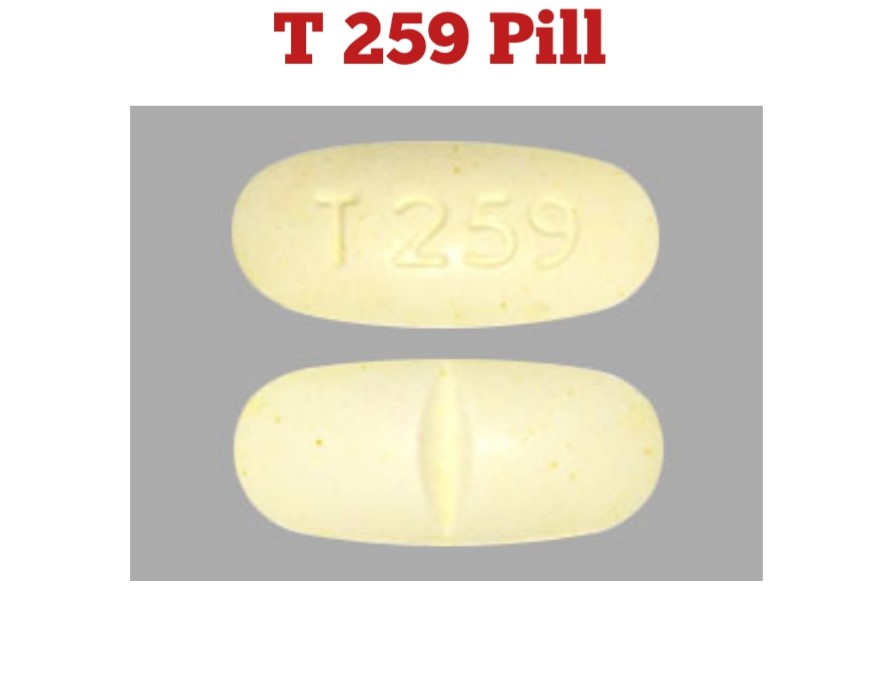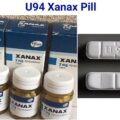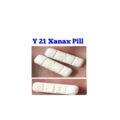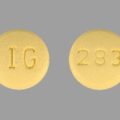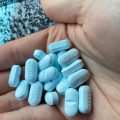The yellow, capsule-shaped pill with the imprint T 259 has been identified as Acetaminophen and Hydrocodone Bitartrate 325 mg / 10 mg. supplied by Camber Pharmaceuticals, Inc.. Acetaminophen and hydrocodone is a combination medicine used to relieve moderate to moderately severe pain. Hydrocodone is in a group of drugs called narcotic pain relievers. While acetaminophen is a less potent pain reliever that increases the effects of hydrocodone.
Acetaminophen and hydrocodone may also be used for purposes other than those listed in this medication guide.
Warnings
MISUSE OF ACETAMINOPHEN AND HYDROCODONE CAN CAUSE ADDICTION, OVERDOSE, OR DEATH. Keep the medication in a place where others cannot get to it.
Hydrocodone may be habit-forming and should be used only by the person it was prescribed for. Keep the medication in a secure place where others cannot get to it. Acetaminophen and hydrocodone can cause side effects that may impair your thinking or reactions. Be careful if you drive or do anything that requires you to be awake and alert.
Taking opioid medicine during pregnancy may cause life-threatening withdrawal symptoms in the newborn.
Fatal side effects can occur if you use opioid medicine with alcohol, or with other drugs that cause drowsiness or slow your breathing.
Tell your doctor if you drink more than three alcoholic beverages per day or if you have ever had alcoholic liver disease (cirrhosis). You may not be able to take medication that contains acetaminophen.
Stop taking T 259 pill and call your doctor right away if you have skin redness or a rash that spreads and causes blistering and peeling.
Before taking this medicine
You should not use this medicine if you are allergic to acetaminophen or hydrocodone, or if you have:
- severe asthma or breathing problems; or
- a blockage in your stomach or intestines.
To make sure acetaminophen or hydrocodone is safe for you, tell your doctor if you have ever had:
- breathing problems, sleep apnea;
- liver disease;
- a drug or alcohol addiction;
- kidney disease;
- a head injury or seizures;
- urination problems; or
- problems with your thyroid, pancreas, or gallbladder.
If you use opioid medicine while you are pregnant, your baby could become dependent on the drug. This can cause life-threatening withdrawal symptoms in the baby after it is born. Babies born dependent on opioids may need medical treatment for several weeks.
Do not breastfeed. T 259 pill can pass into breast milk and cause drowsiness, breathing problems, or death in a nursing baby.
How should I take T 259 pill?
Take T 259 pill exactly as it was prescribed for you. Follow all directions on your prescription label. Never take T 259 pill in larger amounts, or for longer than prescribed. An overdose can damage your liver or cause death. Tell your doctor if you feel an increased urge to use more of this medicine.
Never share this medicine with another person, especially someone with a history of drug abuse or addiction. MISUSE CAN CAUSE ADDICTION, OVERDOSE, OR DEATH. Keep the medicine in a place where others cannot get to it. Selling or giving away T 259 pill is against the law.
If you need surgery or medical tests, tell the doctor ahead of time that you are using this medicine.
You should not stop using this medicine suddenly. Follow your doctor’s instructions about tapering your dose.
Store T 259 pill at room temperature away from moisture and heat. Keep track of your medicine. You should be aware if anyone is using it improperly or without a prescription.
Do not keep leftover opioid medication. Just one dose can cause death in someone using this medicine accidentally or improperly. Ask your pharmacist where to locate a drug take-back disposal program. If there is no take-back program, flush the unused medicine down the toilet.
What happens if I miss a dose?
Since this medicine is used for pain, you are not likely to miss a dose. Skip any missed dose if it is almost time for your next dose. Do not use two doses at one time.
What happens if I overdose?
Seek emergency medical attention or call the Poison Help line at 1-800-222-1222. An overdose of T 259 pill can be fatal.
The first signs of an acetaminophen overdose include loss of appetite, nausea, vomiting, stomach pain, sweating, and confusion or weakness. Later symptoms may include pain in your upper stomach, dark urine, and yellowing of your skin or the whites of your eyes.
Overdose can also cause severe muscle weakness, pinpoint pupils, very slow breathing, extreme drowsiness, or coma.
What to avoid
Avoid driving or operating machinery until you know how T 259 pill will affect you. Dizziness or drowsiness can cause falls, accidents, or severe injuries.
Do not drink alcohol. Dangerous side effects or death could occur.
Ask a doctor or pharmacist before using any other medicine that may contain acetaminophen (sometimes abbreviated as APAP). Taking certain medications together can lead to a fatal overdose.
T 259 pill side effects
Get emergency medical help if you have signs of an allergic reaction to acetaminophen or hydrocodone: hives; difficulty breathing; swelling of your face, lips, tongue, or throat.
Opioid medicine can slow or stop your breathing, and death may occur. A person caring for you should seek emergency medical attention if you have slow breathing with long pauses, blue colored lips, or if you are hard to wake up.
In rare cases, acetaminophen may cause a severe skin reaction that can be fatal. This could occur even if you have taken acetaminophen in the past and had no reaction. Stop taking this medicine and call your doctor right away if you have skin redness or a rash that spreads and causes blistering and peeling.
Call your doctor at once if you have:
- noisy breathing, sighing, shallow breathing, breathing that stops during sleep;
- a light-headed feeling, like you might pass out;
- liver problems – nausea, upper stomach pain, tiredness, loss of appetite, dark urine, clay-colored stools, jaundice (yellowing of the skin or eyes); or
- low cortisol levels – nausea, vomiting, loss of appetite, dizziness, worsening tiredness or weakness.
Seek medical attention right away if you have symptoms of serotonin syndrome, such as: agitation, hallucinations, fever, sweating, shivering, fast heart rate, muscle stiffness, twitching, loss of coordination, nausea, vomiting, or diarrhea.
Serious side effects may be more likely in older adults and those who are overweight, malnourished, or debilitated.
Long-term use of opioid medication may affect fertility (ability to have children) in men or women. It is not known whether opioid effects on fertility are permanent.
Common acetaminophen or hydrocodone side effects include:
- dizziness, drowsiness, feeling tired;
- nausea, vomiting, stomach pain;
- constipation.
This is not a complete list of side effects and others may occur. Call your doctor for medical advice about side effects. You may report side effects to FDA at 1-800-FDA-1088.
What other drugs will affect T 259 pill?
You may have breathing problems or withdrawal symptoms if you start or stop taking certain other medicines. Tell your doctor if you also use an antibiotic, antifungal medication, heart or blood pressure medication, seizure medication, or medicine to treat HIV or hepatitis C.
Opioid medication can interact with many other drugs and cause dangerous side effects or death. Be sure your doctor knows if you also use:
- cold or allergy medicines, bronchodilator asthma/COPD medication, or a diuretic (“water pill”);
- medicines for motion sickness, irritable bowel syndrome, or overactive bladder;
- other narcotic medications – opioid pain medicine or prescription cough medicine;
- a sedative like Valium – diazepam, alprazolam, lorazepam, Xanax, Klonopin, Versed, and others;
- drugs that make you sleepy or slow your breathing – a sleeping pill, muscle relaxer, medicine to treat mood disorders or mental illness;
- drugs that affect serotonin levels in your body – a stimulant, or medicine for depression, Parkinson’s disease, migraine headaches, serious infections, or nausea and vomiting.
This list is not complete. Other drugs may interact with T 259 pill, including prescription and over-the-counter medicines, vitamins, and herbal products. Not all possible interactions are listed here.
Causes of T 259 pill addiction
T 259 pills connect to proteins in the brain and spinal cord called opioid receptors. Opioids interfere with pain signals heading to the brain to change your perception of pain as well as your emotional reaction to it. When used correctly and for only a short period, T 259 pill is usually safe and effective.
Some people who start out taking T 259 pill as treatment for pain take it to get a euphoric feeling instead. As a result, they use it for longer than recommended, or use more than their doctor prescribed. Taking T 259 pill for a long time can build a tolerance to the drug. This means your body needs more of the drug to feel the same effects.
Symptoms
Symptoms of T 259 pill addiction may vary from person to person. Common symptoms can include:
- slower heartbeat
- dizziness or lightheadedness
- nausea and vomiting
- seizures
- fear and depression
- confusion
- headaches
- ringing in the ears
- blurred vision
- slowed breathing
- cold, clammy skin
- sleepiness
- muscle weakness.
Preventing T 259 pill addiction
The best way to prevent T 259 pill addiction is to take the drug exactly as your doctor prescribes. It’s also important to record your pain in a diary while you take it. Review your pain diary from time to time to see how you’re progressing.
If you realize your pain is decreasing, let your doctor know, even if your prescription hasn’t run out. Your doctor may want to reduce your dosage gradually and have you stop taking it sooner than expected.
If you feel you’re starting to crave the drug even at times when you feel little or no pain, talk with your doctor immediately. They can work with you to avoid developing a T 259 pill addiction.
Treating T 259 pill addiction
If you find yourself taking T 259 pill for longer than prescribed or taking it in larger doses despite any negative consequences, you may have an addiction. Tell your doctor immediately. Your doctor may have you reduce your use slowly rather than stopping it suddenly.
Stopping use suddenly can lead to withdrawal symptoms, such as:
- anxiety
- trouble sleeping
- irritability
- unusual sweating
- muscle aches.
If you think you can’t quit on your own, there are many programs available to help you. Some of these programs use medications to help ease withdrawal, while others don’t. The best approach for you will depend greatly on the nature of your addiction.
Further information
Remember, keep this and all other medicines out of the reach of children, never share your medicines with others, and use acetaminophen or hydrocodone only for the indication prescribed.
Always consult your healthcare provider to ensure the information displayed on this page applies to your personal circumstances. READ: How to Spot T 259 Yellow Pill Fake Vs Real


